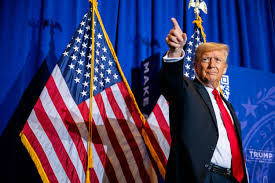When some idea or other becomes a
buzzword, especially if it sounds impressive or alarming, it is time to stay
calm, take a deep breath, and think about it. ‘Quiet diplomacy’, ‘western plot’,
‘National Development Plan’, ‘innocent until proven guilty’, are buzzwords that
served the African National Congress’s political purposes in the past. Now the
party has a dire warning for us of ‘state capture’.
State capture refers to the
control of the state by substantial private interests, the state thereby losing
its independence and the power to legislate and act for all. France
As a modern example of state
capture, the left like to point to the USA
State capture in this sense is
not the condition of South
Africa
We must never forget South Africa
The ANC cannot indulge any major
internal dispute, however morally significant. From start to finish in the long
drawn-out scandal of Nkandla, where President Zuma only finally surrendered in
the constitutional court, the ANC dummied up and closed ranks as always in a
crisis. It was not so much to save President Zuma; it was to keep the party
intact.
Last week dummying up ended abruptly. Mr Mcebisi Jonas created an uproar by revealing the Guptas had offered him the finance ministry. President Zuma was immediately at the centre of a climactic row as it became clear he must be guilty of putting the interests of business friends before his oath of office.
In case anyone was still in doubt
about it, the Honourable Member Mosiuoa Lekota shouted out in the national assembly that
President Zuma was no longer ‘honourable’ because of his conduct. Mr Lekota's performance has featured on TV almost every day since.
The party is in a terrible
dilemma. The leadership knows beyond doubt that what South Africa
Rank and file, parliamentary
caucus, Cabinet, cronies and hangers-on are all trapped together in this and local
elections are coming. President Zuma can only lend his face to these as a
discredited leader, or not feature in them at all. Yet to replace him right now
is as impossible as anything could be in politics.
The ANC leadership is falling
back on the old stand-bys of shelving and smothering the issue. An exasperated ANC
Secretary General Gwede Mantashe told insistent journalists over the weekend
that the party’s National Executive Committee was under ‘no pressure’ even to
consider recalling President Zuma. It seems he is safe for now.
What could be the break point to
change that? Only the coming elections.
If the ANC do well, or even just
okay in them, President Zuma could serve out his full term, not because he has
support to spare anymore, but because it is very difficult, not to say
dangerous, for the party to 'recall' a second president after the splits that
followed former president Thabo Mbeki’s recall in 2008.
However a bad result, even without the ANC losing
the major municipalities the opposition claim are up for grabs, would be fatal.
An outright victory, a clear winner and loser, are not required for this.
Elections are also measured by share of vote.
Mr Mantashe will be counting anxiously later this
year, even if he can blame 'low turnout' for any fall off in the party's support. A low turnout is a favourite get-out for bad local election results.
Everything is where it should be to force change:
in the hands of South African voters. Has their loyalty to the ANC been
seriously dented at last? Has democracy been moving forwards underneath all
these dramatic events, or does South
Africa

